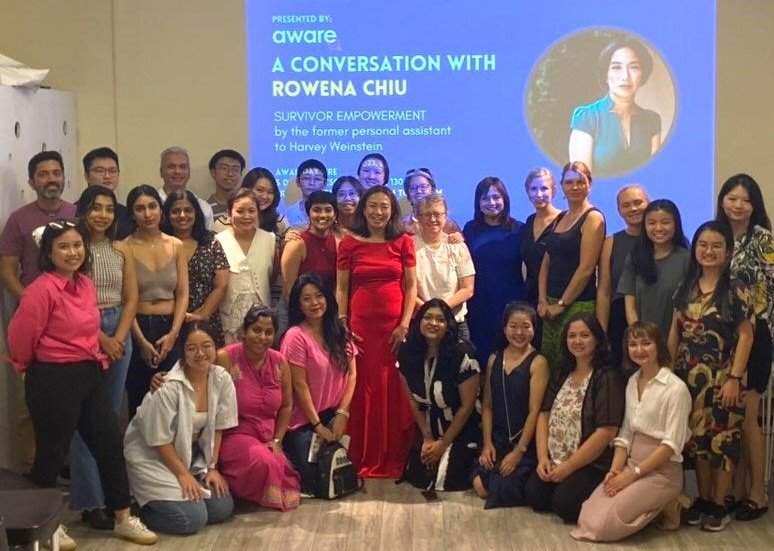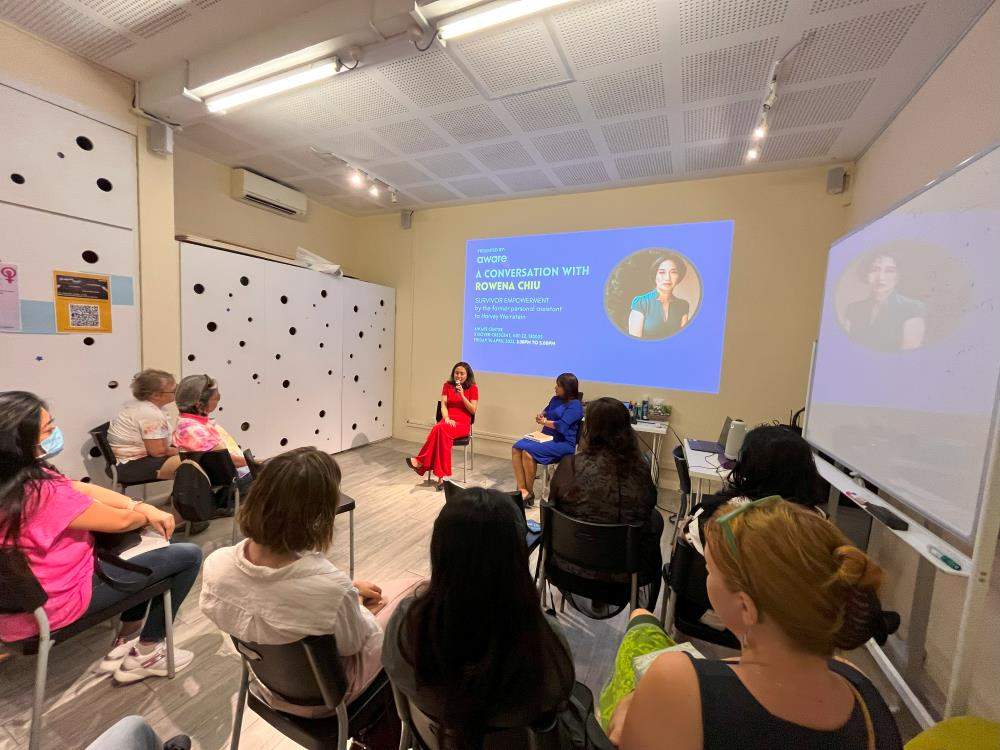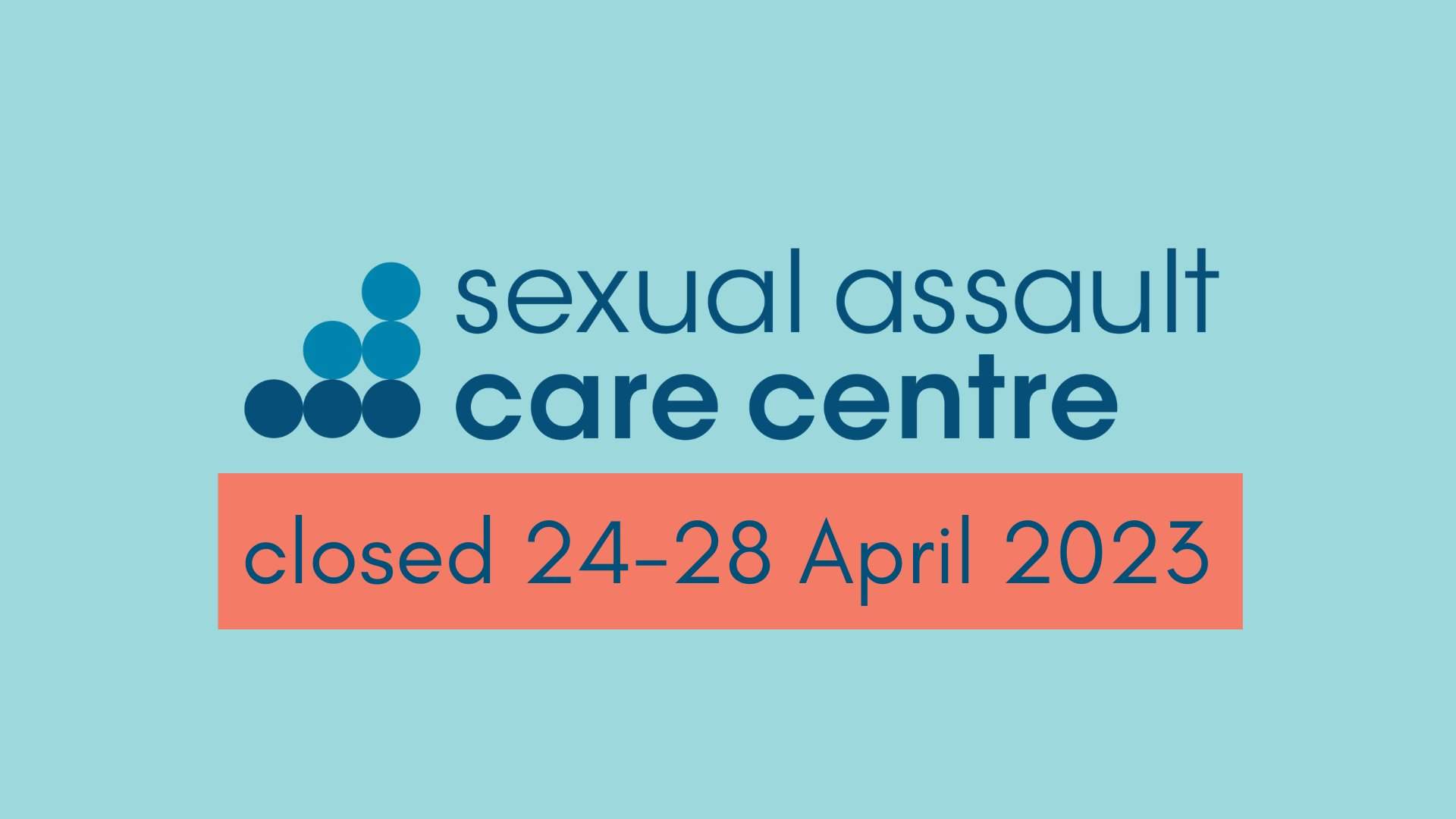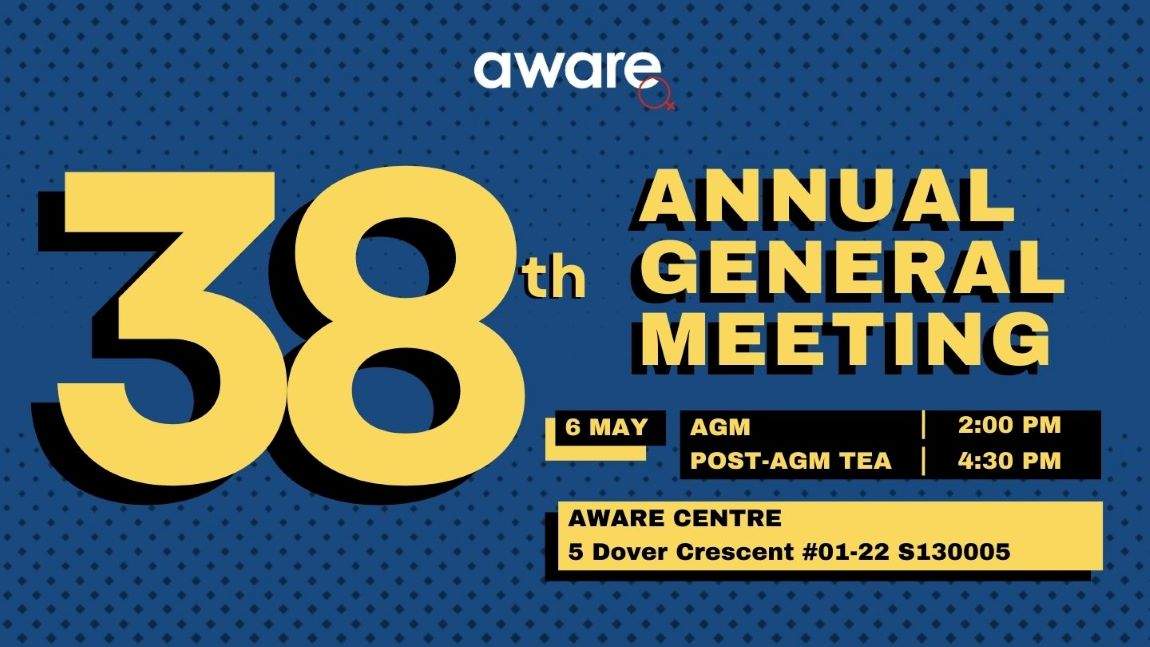This op-ed was originally published in The Straits Times on 12 May 2023.
News of last Friday’s sentencing of J, the leader of an abhorrent sexual violence ring involving at least six perpetrators and four survivors, dredged up the revulsion I felt when I first read about the case in 2022.
J and a group of other men conspired over eight years to methodically drug, rape and record their assault of the women in their lives, even distributing the footage online.
The complicated chronology of J and company’s machinations, charted elsewhere, has emphasised both the sickening degree of planning in this web of deception and the extensive sexual violence to which these women were subjected.
Yet while we would be right to feel outrage, it may be a more constructive and worthwhile exercise to reflect on what lessons these acts hold for a Singapore pledging to support women and protect them from sexual harm, after the Government accepted 25 recommendations in a White Paper on Women’s Development in 2022.
Lesson 1: Toxic masculinity is the bedrock for this house of horrors
First, this particular case provides a textbook example of toxic masculinity, in terms of both the perpetrators’ urge to assert power and control over their wives, and their related desire to flaunt said power and control to other men.
Research has closely associated sexual violence with toxic masculinity – a term describing how society often unhealthily equates manhood and male-ness with traits like dominance, strength, stoicism and aggression, and socialises young men and boys to embrace behaviours that demonstrate power.
Sometimes this can take the form of the dehumanisation of women, where women are treated as sexual objects or commodities to which men are entitled, rather than as equal partners in relationships or as individuals with their own desires and agency.
By drugging and assaulting their wives, as well as photographing these acts and distributing them online, the perpetrators also cultivated what Aware has called “a fantasy of female ignorance, helplessness and indignity”. Consider, for example, that in 2015 J wrote the following to a co-conspirator about their respective spouses: “Bet both of them still thinking they are their husband’s chaste and loyal wife”.
Putting aside the fact that chastity is an imaginary metric devised to legitimise the policing of women’s bodies, what seems to spark cruel delight in J is the victims’ illusion that their bodies were their own. This only excites a person whose own sense of self hinges greatly upon the relative lack of selfhood of those around him.
The perpetrators essentially see their wives as chattel: Another man, K, told J that K’s wife was “always yours”, as though she was his property to give.
Yet toxic masculinity doesn’t just provide a script for how men should behave with women. It also dictates how men relate to other men.
The camaraderie formed between the perpetrators was based on horrific acts of seeking out like-minded men on online forums, colluding to rape, disseminating their “spoils” to each other in the form of intimate images and the sharing of fantasies of further violence, including impregnating each others’ wives without their consent or knowledge.
In short, it was insufficient for each of them to violate women. Puffed up on self-perceived power, they needed an audience who would “get it” – a group of other men with the same toxic worldview, who would read their behaviour not as horrifyingly vicious acts of violence, but as statements of virility and manhood.
Here is also where a critical clarification is needed: When we say “masculinity”, we do not literally mean “men”. “Masculinity” refers not to physical persons but to a set of ideologically inflected norms which can be internalised and enforced by anyone regardless of gender identity, even if they have traditionally been associated with men.
Lesson 2: The ‘manosphere’ deserves our full concern
Second, for far too long have we ignored the paltry state of discourse among the various online communities centred on misogyny and the degradation of women on places like Sammyboy. These are the same online platforms on which J and his accomplices connected as early as 2010, when such aspects of the “manosphere” were in a relatively fledgling state.
Back then, one might have been forgiven for brushing such discourse off as mere online trolling – unsavoury but ultimately harmless.
But our lives have increasingly moved online, creating a greater propensity for technology-facilitated violence including deepfakes and digital voyeurism.
High-profile incidents like the murderous rampage by incel hero Elliot Rodger in 2014 also showcase the heightened propensity for online misogyny to spill over into physical violence. More recently, the rabid popularity of misogynist influencer Andrew Tate suggests more young men are being radicalised into toxic masculinity on TikTok and other social media platforms.
Aware’s research, with technology firm Quilt.AI, tells us that misogynist narratives are alive and well in the Singapore context, as victim blaming, confusion around consent, and misinformation about sexual violence continue to perpetuate in these forums.
The recently passed Online Safety (Miscellaneous Amendments) Act aims to target, among other types of harms, content that advocates or instructs on sexual violence or coercion, which would presumably include at least some of J and company’s posts on various platforms. That said, given that the Act’s scope does not encompass direct messaging functions such as SMS, MMS and DMs, it’s unclear exactly how many of their posts and messages would have been liable.
More importantly, while stronger moderation and regulation of online harms can stem violence propagated on the Internet, shutting down a forum like Sammyboy will not end misogyny for good, since users can gather elsewhere.
To undo the pernicious reach of the manosphere, we should also introduce to Singapore schools comprehensive sexuality education that actively debunks gender stereotypes, decries toxic masculinity and critically examines pornography.
Lesson 3: Don’t call it the ‘wife-sharing case’
Third, the way that this case has been popularly referred to as the “wife-sharing case” leaves something to be desired.
I am sympathetic to the usefulness of a snappy shorthand from court documents and the restrictions of headline-writing to make sure we’re all on the same page. After all, “inter-marital rape, voyeurism and non-consensual distribution of intimate images” can be a mouthful.
Yet the convenience of that tag belies the violence in this case of rape, and obscures the focus on the lack of consent. This was not some swinging, open marriage arrangement (which, to be clear, would be entirely non-violent as long as all parties consented), but rape of unconscious, unwitting women.
The public has heard only briefly from the survivors of this case, via their victim impact statements and what we do know is heartbreaking: The wives of J and K both described intense feelings of betrayal, and suicidal thoughts as well as the experience of feeling numb as a coping mechanism. These psychological responses frequently arise after an experience of profound trauma, and can persist for a very long time.
I hope that, however they choose to proceed from here, these women – and other survivors across Singapore – know that help is available, not least at Aware’s Sexual Assault Care Centre.
As soul-crushing as sexual violence can be, there is hope at the end of the tunnel, not just for individual survivors but for society at large – if we can identify it, call it out and fight it together.
Corinna Lim is the Executive Director of gender equality advocacy group AWARE.






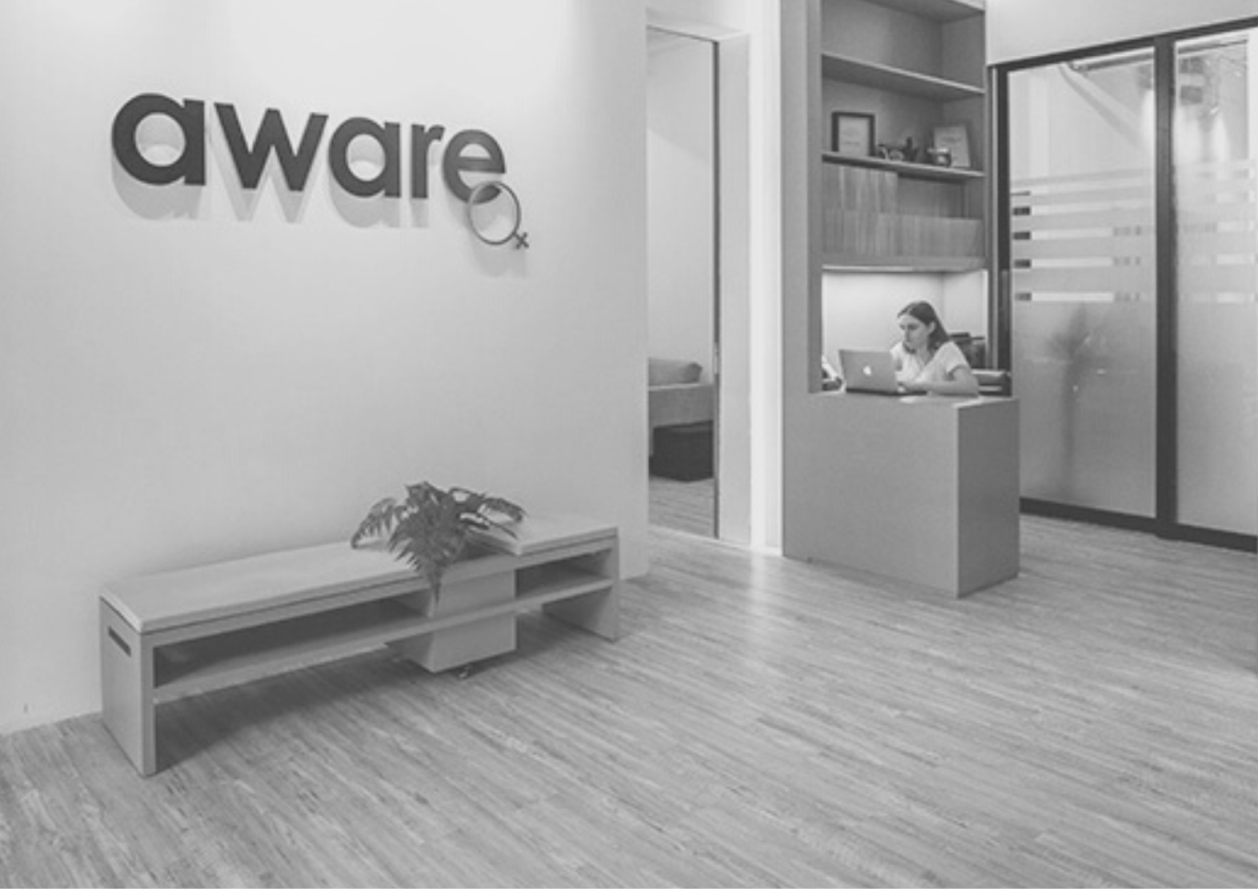
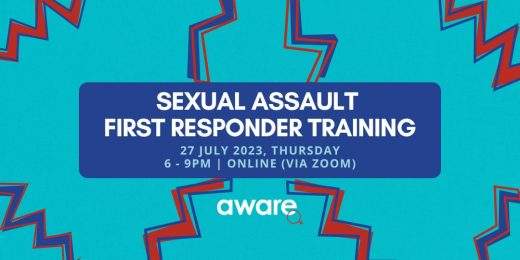
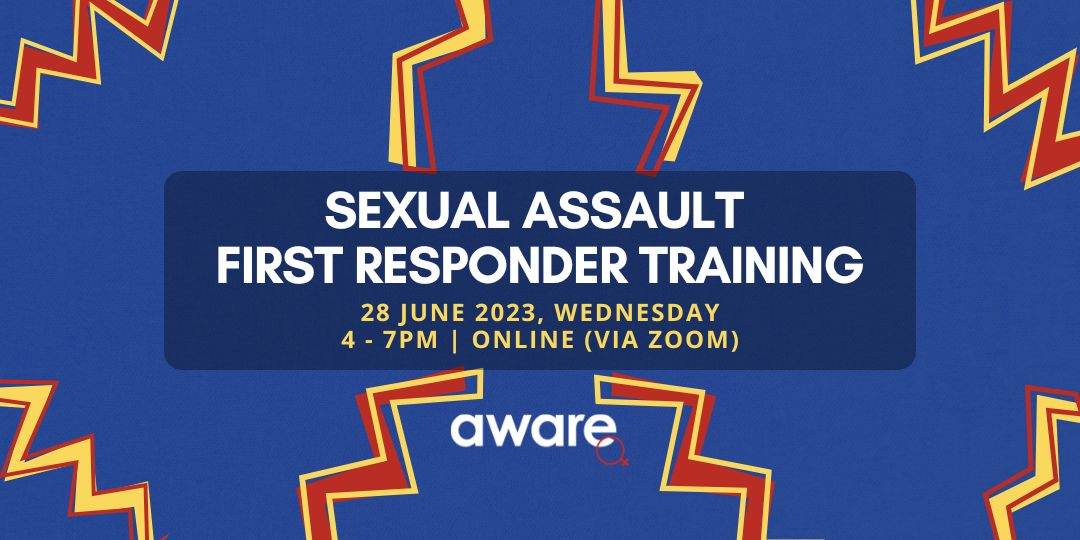
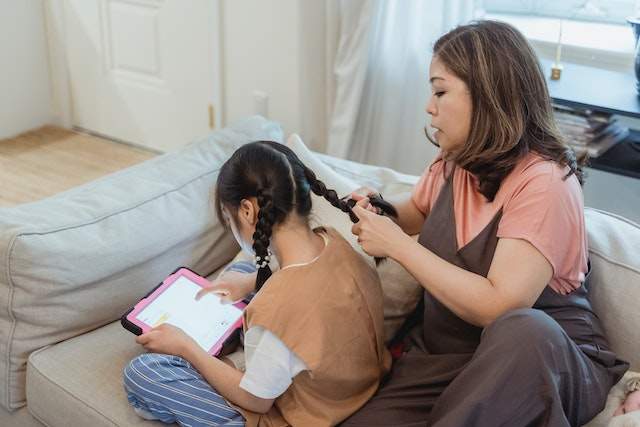
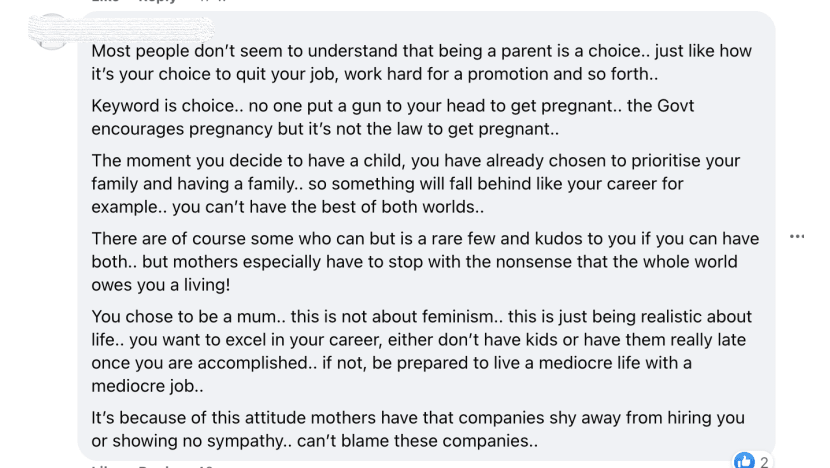 Screengrab of an online comment. (Source: AWARE)
Screengrab of an online comment. (Source: AWARE) Screengrab of an online comment. (Source: AWARE)
Screengrab of an online comment. (Source: AWARE) Screengrab of an online comment. (Source: AWARE)
Screengrab of an online comment. (Source: AWARE) Screengrab of an online comment. (Source: AWARE)
Screengrab of an online comment. (Source: AWARE)